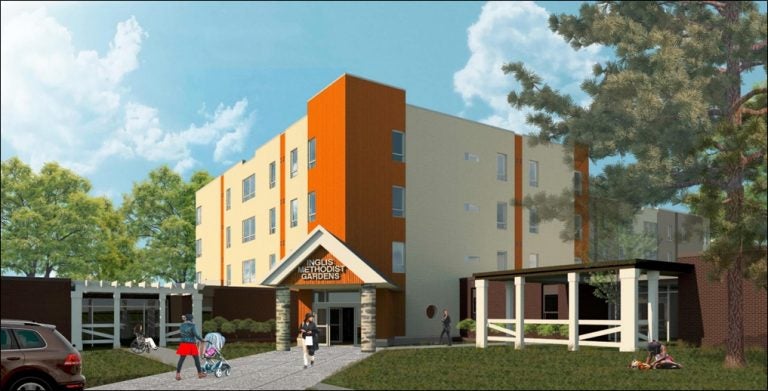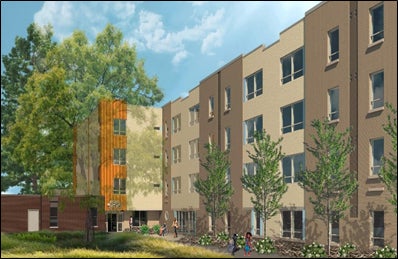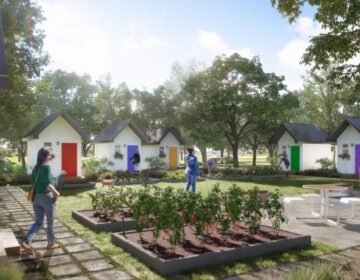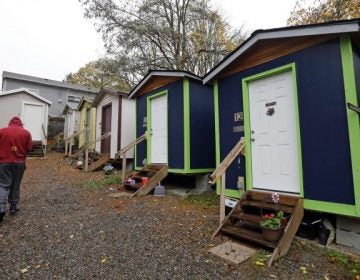Nonprofits, insurer team to build subsidized apartments for Philly homeless
Inglis Methodist Gardens also will offer social services and connect its homeless and disabled tenants to nearby mental- and physical-health services.

A rendering of Inglis Methodist Gardens, part of Methodist Services’ 22-acre campus off Monument Road in West Philly. (Provided)
Updated 12:56 p.m. Monday
Two Philadelphia nonprofits and a health-insurance company are teaming up to provide subsidized apartments to homeless people and those with disabilities.
Announced Friday, Inglis Methodist Gardens also will offer social services and connect tenants to nearby mental- and physical-health services.
“Getting housing is first, food is second … after that is health care,” said Jason Rottman, CEO of Aetna Better Health of Pennsylvania.

The 47-unit building in West Philadelphia will sit a short drive away from two well-known medical facilities, Philadelphia College of Osteopathic Medicine and Belmont Behavioral Hospital.
It is hoped that will make it easier for tenants – families and individuals – to get the ongoing treatment they need to get back on their feet and into a place of their own.
“If your mental-health challenges are on a roller-coaster track, you’re more likely to lose that housing. By engaging them with a physician who is treating them on a regular basis, it improves the chances of long-term permanent housing,” said Anne Rice-Burgess, president of Methodist Services.
Ina Harmon can relate.
Harmon and her teenage son were homeless for three years after Harmon’s husband died and she couldn’t afford the rent.
After crashing with friends and staying at city shelters, they now have a place of their own. Harmon said getting help for her depression and anxiety through Methodist Services helped her reach a place where she could make that transition.
“I started seeing a therapist, started seeing a psychiatrist, which helped relieve some of the stress,” she said.
Inglis Methodist Gardens will be part of Methodist Services’ 22-acre campus off Monument Road in West Philly. It is projected the project will cost $16.4 million and take at least a year to complete.
Aetna provided $4 million in seed money. The rest of the funding will come from low-income housing tax credits from the federal government. Inglis and Methodist are still working on securing those credits, but the project’s partners think the program they want to provide will be tough to turn down.
“What we’re looking to have is a much more proactive, wellness-focused rather than emergency-focused approach to people’s lives,” said Dyann Roth, president of Inglis, which helps people with disabilities.
Inglis Methodist Gardens is the latest project in Philadelphia to focus on health care for the homeless. In April, a medical facility opened for homeless people discharged from hospitals.
Staff at Serenity Court – the city’s first and only medical respite for the homeless – do wound care, administer intravenous antibiotics, and drive patients to chemotherapy appointments, among other things.
Room and board are covered through contracts with local hospitals. Medicaid pays for the clinical services.
The goal is to transition patients to a permanent supportive-housing program such as Inglis Methodist Gardens.
Editor’s Note: This story has been updated to reflect which organizations are applying for low-income housing tax credits from the federal government for the subsidized apartments.
WHYY is your source for fact-based, in-depth journalism and information. As a nonprofit organization, we rely on financial support from readers like you. Please give today.





